#Economy of Malta
Text
Learn about the fascinating secrets of Malta, a gem tucked away in the Mediterranean.
This movie reveals 8 fascinating facts about this island nation, including its historical heritage and gorgeous architecture.
Discover the city's rich history, which includes everything from ancient empires to the Knights of St. John, and be in awe of the magnificent baroque and neoclassical structures.
Explore the Maltese archipelago, where three inhabited islands form a singular patchwork, and succumb to its fascination.
Join us as we explore Malta's wonderful attractions, including its pleasant weather, booming economy, and UNESCO-recognized monuments.
#fact#fact flow#Malta#Mediterranean island#Maltese history#Cultural heritage#Architecture#Baroque buildings#Island life#Economy of Malta#Financial
0 notes
Text
Admirable Articles of Malta's Constitution
8. Promotion of culture, etc
The State shall promote the development of culture and scientific and technical research.
9. Safeguarding of landscape and historical and artistic patrimony
The State shall safeguard the landscape and the historical and artistic patrimony of the Nation.
10. Compulsory and free primary education
Primary education shall be compulsory and in State schools shall be free of charge.
13. Hours of work
The maximum number of hours of work per day shall be fixed by law.
The worker is entitled to a weekly day of rest and to annual holidays with pay; he cannot renounce this right.
17. Social assistance and insurance
Every citizen incapable of work and unprovided with the resources necessary for subsistence is entitled to maintenance and social assistance.
Workers are entitled to reasonable insurance on a contributory basis for their requirements in case of accident, illness, disability, old-age and involuntary unemployment.
Disabled persons and persons incapable of work are entitled to education and vocational training.
34. Protection from arbitrary arrest or detention (Part of it)
No person shall be deprived of his personal liberty save as may be authorised by law in the following cases, that is to say -
for the purpose of bringing him before a court in execution of the order of a court or before the House of Representatives in execution of the order of that House;
in the case of a person who has not attained the age of eighteen years, for the purpose of his education or welfare;
for the purpose of preventing the spread of an infectious or contagious disease;
Any person who is arrested or detained shall be informed at the time of his arrest or detention, in a language that he understands, of the reasons for his arrest or detention:
Provided that if an interpreter is necessary and is not readily available or if it is otherwise impracticable to comply with the provisions of this sub-article at the time of the person’s arrest or detention, such provisions shall be complied with as soon as practicable.
Any person who is unlawfully arrested or detained by any other person shall be entitled to compensation therefor from that person.
35. Protection from forced labour
No person shall be required to perform forced labour.
For the purposes of this article, the expression "forced labour" does not include -
any labour required in consequence of the sentence or order of a court;
labour required of any person while he is lawfully detained by sentence or order of a court that, though not required in consequence of such sentence or order, is reasonably necessary in the interests of hygiene or for the maintenance of the place at which he is detained or, if he is detained for the purpose of his care, treatment, education or welfare, is reasonably required for that purpose;
any labour required of a member of a disciplined force in pursuance of his duties as such or, in the case of a person who has conscientious objections to service as a member of a naval, military or air force, any labour that that person is required by law to perform in place of such service;
any labour required during a period of public emergency or in the event of any other emergency or calamity that threatens the life or well-being of the community.
37. Protection from deprivation of property without compensation (Part of it)
No property of any description shall be compulsorily taken possession of, and no interest in or right over property of any description shall be compulsorily acquired, except where provision is made by a law applicable to that taking of possession or acquisition -
for the payment of adequate compensation;
securing to any person claiming such compensation a right of access to an independent and impartial court or tribunal established by law for the purpose of determining his interest in or right over the property and the amount of any compensation to which he may be entitled, and for the purpose of obtaining payment of that compensation; and
securing to any party to proceedings in that court or tribunal relating to such a claim a right of appeal from its determination to the Court of Appeal in Malta:
Provided that in special cases Parliament may, if it deems it appropriate so to act in the national interest, by law establish the criteria which are to be followed, including the factors and other circumstances to be taken into account, in the determination of the compensation payable in respect of property compulsorily taken possession of or acquired; and in any such case the compensation shall be determined and shall be payable accordingly.
Nothing in this article shall be construed as affecting the making or operation of any law so far as it provides for the taking of possession or acquisition of property -
in satisfaction of any tax, rate or due;
by way of penalty for, or as a consequence of, breach of the law, whether under civil process or after conviction of a criminal offence;
by way of the taking of a sample for the purposes of any law;
where the property consists of an animal upon its being found trespassing or straying;
as an incident of a lease, tenancy, licence, privilege or hypothec, mortgage, charge, bill of sale, pledge or other contract;
by way of the vesting or administration of property on behalf and for the benefit of the person entitled to the beneficial interest therein, trust property, enemy property or the property of persons adjudged bankrupt or otherwise declared bankrupt or insolvent, persons of unsound mind, deceased persons, or bodies corporate or unincorporate in the course of being wound up or liquidated;
in the execution of judgments or orders of courts;
by reason of its being in a dangerous state or injurious to the health of human beings, animals or plants;
in consequence of any law with respect to the limitation of actions, acquisitive prescription, derelict land, treasure trove, mortmain or the rights of succession competent to the Government of Malta; or
for so long only as may be necessary for the purposes of any examination, investigation, trial or inquiry or, in the case of land, the carrying out thereon -
of work of soil conservation or the conservation of other natural resources of any description or of war damage reconstruction; or
of agricultural development or improvement which the owner or occupier of the land has been required and has without reasonable and lawful excuse refused or failed to carry out.
Nothing in this article shall be construed as affecting the making or operation of any law so far as it provides for vesting in the Government of Malta the ownership of any underground minerals, water or antiquities.
Nothing in this article shall be construed as affecting the making or operation of any law for the compulsory taking of possession in the public interest of any property, or the compulsory acquisition in the public interest of any interest in or right over property, where that property, interest or right is held by a body corporate which is established for public purposes by any law and in which no monies have been invested other than monies provided by any legislature in Malta.
97. Tenure of office of judges
Subject to the provisions of this article, a judge of the Superior Courts shall vacate his office when he attains the age of sixty-five years.
A judge of the Superior Courts shall not be removed from his office except by the President upon an address by the House of Representatives supported by the votes of not less than two-thirds of all the members thereof and praying for such removal on the ground of proved inability to perform the functions of his office (whether arising from infirmity of body or mind or any other cause) or proved misbehaviour.
by Dunilefra, working for State Policy
#Malta#Dunilefra#Politics#Political Reform#World Politics#World Order#Fundamental Rights#Human Rights#Economy#Religion#State Policy#Political Analysis#Constitution#Constitutional Law
2 notes
·
View notes
Text
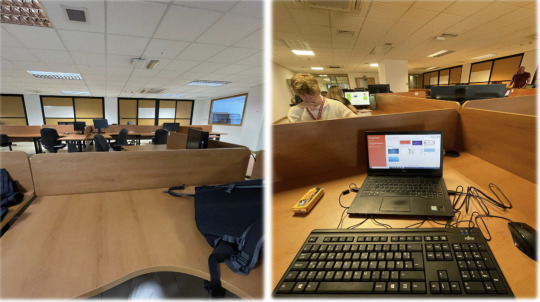
Yesterday was more of a day with some practical info. Today was my first day of work. I got my laptop with the necessary materials. Also a Sim card with unlimited calls, texts and data that we can use. My task is to make a PowerPoint presentation on the 'GO Malta' website, evaluating the products. I also have to give positive and negative feedback. I then have to present that presentation in front of my colleagues on Friday.

9 notes
·
View notes
Text
A real estate business without a basis of a law property can be proven to be based on an organized crime.
Russians and Ukrainians who bought the property using an amount of monies from the organized crime can represent a terror network that is selling narcotics and a weapon without a license.
An administration can qualify such gangs as leads who are qualified for a confiscation of a property.
Entrepreneurs can be qualified for the confiscation of the property, partly, or completely depending on a source of an income.
An author Piotr Sienkiewicz
+48 721 951 799
#An economy#A complaint#A consumer#Consumers#A law#A real estate business#real estate#A property#A law property#A confiscation#A governor#A governance#Spain#Dubai#Malta
2 notes
·
View notes
Text

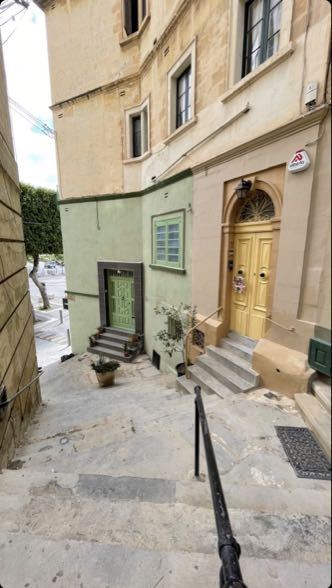
Hey everyone, I'm going to give you a quick mid-week catchup about what we've done and what's more to come this week.
The week started off with me (and most of the other guys) being very tired and exhausted because of the exploring we have done in the weekend. Work wise I went on with the same task I had last week because I wasn't finished yet and there's no deadline. When I was finished with the task I needed to make a PowerPoint about it and present it. What I didn't know is that I needed to present it for 15 people. I was a bit shook at first but managed to do my best and it resulted in very good feedback from my mentor but also the people who I presented it to. I was very happy and didn't know that the things I did were so useful to them but apparently they are. We also can't forget the absolute embarrassing performance Real Madrid put up against the greatest team in Europe, Manchester City. Lovely to watch on a wednesday night!

For the coming days we are obviously going to work but also explore the island(s) a bit more because we can't miss out on the beautiful experiences this internship (and Malta) has to bring. We are planning to go out again because we found it very amusing and had a great time. Obviously we will be behaving ourselves and will be causing no trouble whatsoever. We are also going to Comino if the weather is suitable to swim because it has been a bit rainy and dull since we've been here.
Comino is a small and picturesque island located between Malta and Gozo. Known for its stunning beauty, it offers crystal-clear turquoise waters, pristine beaches, and the famous Blue Lagoon which hopefully we'll be swimming in and you guys will be the first to know! With limited development, it provides a peaceful escape, ideal for swimming, snorkeling, and enjoying the calm atmosphere.
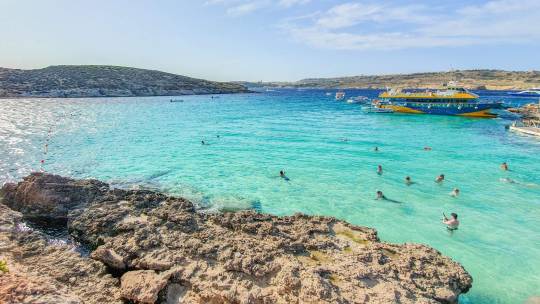
6 notes
·
View notes
Text
EU Commission reaffirms possible funding for Malta gas pipeline
The European Commission has re-added Malta’s TransGas pipeline project to its sixth list of Projects of Common Interest (PCI), despite the pipeline’s links to corruption and murder.
The pipeline will link Malta to Sicily, replacing the current LNG tanker anchored off the coast of Delimara. The Maltese government has asked the Commission for its contribution at an estimated cost of €400 million.
The pipeline leads to the Delimara power plant, which is operated by Electrogas. Yorgen Fenech, one of the beneficial owners of the company, is imprisoned pending trial for his involvement in the murder of Daphne Caruana Galizia, while others involved are suspected of money laundering and corruption.
Read more HERE
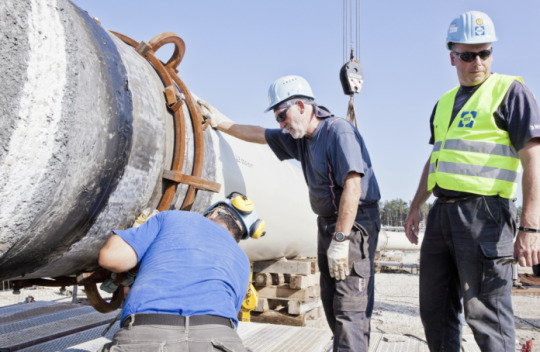
#world news#world politics#news#europe#european news#eu politics#european union#eu news#eu economy#malta#malta 2023#oil gas#natural gas#gas prices#oil and gas#gas pipeline
0 notes
Text
Expensive signals
During the 17th century the giving of salutes by warships became so excessive and wasted so much gunpowder that it placed a real financial burden on the England of Charles II. Ridiculous as it may seem the gunners resorted to their weapons every time every time anyone went ashore, and if it should be a lady the sailors would fire 7 guns and play a tune on the drums. In 1675 a merchant ship in the Thames failed to give an adequate salute to a man o'war, whereupon the warship fired a shot at her to make her stop and apologize. On this occasion, the gunner went aboard and fined the merchant captain six schillings and six pence for the cost of the powder.
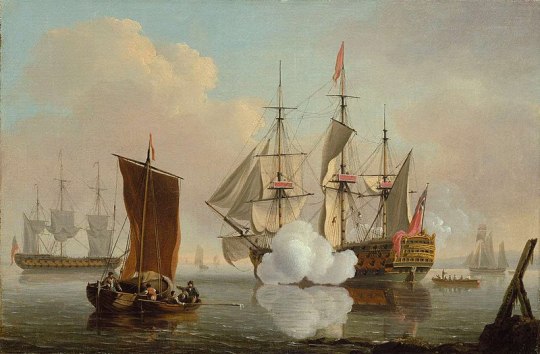
British Man o'war with other shipping at anchor, by John Thomas Serres (1759–1825) (x)
The matter of wasting powder was raised in the House of Commons. Apparently East Indianmen meeting English warships in the Channel had to salute with 7 guns, while the man o'war replied with 5. At Plymouth Castle each man o'war saluted with 9 guns, the castle replied with the same and then the warship fired 3 more to express its thanks. And so it went on.
An English Captain named Holden, invited to dinner on one of the ships he was escorting to Tangier, was given a 5 gun salute when he left her, to which he replied with 3, apparently on the basis that between Englishmen the vote of thanks required two guns less. But with foreigners the English insisted on having a reply to a salute with the same number of guns. When one Venetian ship saluted an English vessel with 11 guns, she was snubbed with a reply of just 5. On the King's birthday every ship in the fleet - and there were hundreds, large and small - fired 13 guns. When one British admiral entered Malta the Knights of St. Johns gave him a 45 gun salute, lasting two hours. Every English ship then replied with 21.
On the St. George's Day, after the King's health had been drunk, every ship in the fleet fired 25 rounds. And if a ship's captain should die his gunners might fire anything between 40 and 100 rounds. It was an expensive folly which imposed an unnecessary burden on the fragile economy of the Stuart state- but it must have been fun. Unfortunately, this fun was curtailed in the course of the 18th century.
74 notes
·
View notes
Text
Interesting example of empires being affected by ecological degradation and climate change: How Ottoman Istanbul was pummeled by climate change in the nineteenth century. The publicized, alleged increase of “fever of Constantinople” was not just Orientalist discourse, as the imperial capital was threatened by excessive heat, drought, and regional deforestation marked by disease outbreak. Recent tree-ring data suggests large scale of drought during the century; drought decreased water availability for irrigation and cleaning. The city was forced to pay large sums to import coal from England. In 1829, locally-sourced charcoal prices tripled in one year. The cost of public baths sky-rocketed, making hygiene and sanitation inaccessible. In 1840, a General Directorate of Forests was founded to harvest local timber; within a few years, nearly two-thirds of Kocaeli’s forests were torn down. Simultaneously, the city’s population was quickly rising (500,000 in 1856 to 800,000 in 1885), and rural residents in nearby regions were exhausted by imposed mandatory labor to accommodate the city’s need for fuel.
---

Charles MacFarlane, the Scot known for his historical and travel writing, visited Istanbul in 1828. MacFarlane, who suffered for years from “fever of Constantinople” (Brucella) after his visit, mentions how he could not understand why previous observers had described the city’s climate as “pure and healthy” [...]. Ottomanists Daniel Panzac and Nukhet Varlık also point to a “climate of epidemics” referring to other nineteenth-century accounts that showed disease as a boundary marker between Europe and the Orient. Indeed, the city experienced significant infectious disease outbreaks such as that of the plague in 1801, 1811–1812, 1831, 1853, and 1876, and seven cholera outbreaks in 1831, 1847, 1854, 1865, 1870, 1876–1877, and 1893.
What changed? We know that, like other industrial city population movements, dense settlement and inadequate infrastructure worsened health conditions in Istanbul. The number of inhabitants rose from over five hundred thousand in 1856 to over eight hundred thousand in 1885. However, there was also another factor: climate change. The recent tree ring-based hydroclimate June/July precipitation reconstruction of the Old World Drought Atlas confirms a significant decrease in nineteenth-century precipitation values. [...]
---
Drought worsened living conditions. It turned rivers into marshland and decreased available water sources for turning water mills used for irrigation and cleaning. Waterborne diseases such as diarrhoea and cholera increased. Excessive heat, swamps, and deforestation triggered the spread of vector-borne diseases such as malaria. Moreover, water scarcity worsened sanitary conditions. Diseases that are transmitted from animals to human beings through direct or indirect contact by contaminated food (often milk products), like Brucella (fever of Constantinople, Malta fever, or Mediterranean fever), also increased.
---
The stress on the economy was also enormous. Excessive heat affected load-bearing animals and people, making transportation more difficult. [...] Extremely hot conditions increased the stress on seafaring oarsmen. A lack of sufficient charcoal and firewood resulted in ships being fuelled with coal from England, which was costly. Problems of transporting wood and the cumulative long-term effects of deforestation made firewood supplies an enormous issue. The Ottoman state set prices and imposed mandatory labour on rural regions, which absorbed the burden of providing food, firewood, charcoal, and construction material to Istanbul and the city’s palace. Charcoal, which had previously been supplied as taxes from villages in some Balkan countries after the Russian War, was not available. As a consequence, charcoal prices rose from 3.8 Akçes in 1829 to 13.6 Akçes in 1830. In the second half of the century, numerous fires, some of which coincided with scorching temperatures, increased timber demand and prices multiplied.
---
The state took measures against this severe firewood shortage. Necessary institutional action was taken. Laws were changed to regulate the organization of forests under the General Directorate of Forests founded in August 1840. And silviculture was established. Once supply from the Balkans was no longer forthcoming, the stress on regional supplies increased. The demand for timber from Kocaeli, a neighbouring district located east of Istanbul, was almost four times higher. Nearly two-thirds of forests were cleared by 1847. Life became desolate for villagers; some even sold their buffaloes to relieve themselves of the burden to supply wood. Until Ottoman coal began to arrive from Zonguldak on the Black Sea in 1850, Istanbul’s firewood and coal supply was a significant problem.
---
Firewood and water scarcity increased the cost of public baths, which were essential for the well-being and health of inhabitants. The number of public baths did not increase in line with the doubling of Istanbul’s population. [...] For example, during the 1811–1812 plague, ship crews carrying firewood and charcoal as well as food to Istanbul fled the city. This increased labour and transportation costs. Some public baths, whose furnaces were heated with charcoal and firewood, went bankrupt. [...]
---
The first municipal institution (Şehremaneti), founded in 1868, was given the urgent mandate of ensuring public hygiene. The effect of climate change on the landscape, economy, and institutional changes was significant. Indeed, climate is an important factor to consider for the history of the era. Disease was not only a result of Orientalist discourse. Environmental conditions also changed Istanbul’s healthscape. Thus, unbeknownst to Charles MacFarlane, the discrepancy between the earlier accounts of Istanbul and his own experiences can, at least partly, be ascribed to climate change.
---
Image, caption, and text by: Özlem Sert. “Water, Firewood, and Disease in Nineteenth-Century Istanbul.” Environment & Society Portal, Arcadia no. 45. Rachel Carson Center for Environment and Society. Autumn 2020. [Bold emphasis and some paragraph breaks/contractions added by me. Italicized first paragraph/heading in this post added by me.]
58 notes
·
View notes
Text
Dublin 1997 Wrap Up

Dublin 1997 is a strange year in Eurovision history. It falls between eras. It comes after the first challenge to the ballad hegemony misfired and before the full televote-era. For some it's the final year in a golden period before the onset of the Dark Times. It certainly marks the end of Irish dominance. The good results of all the English-speaking countries of Ireland, the UK and Malta are coming to an end.
There's a strange conformity of uncertainty. No country really knows what to do, so they sort of go with what they know as they wait for firmer footing.
Germany felt aggrieved about 1996, but then managed not to send Leon despite almost engineering their national final for him to win. Sweden sent almost the archetypally Swedish band Blond when there were far more interesting songs in Melodifestivalen. France chose a national sweetheart who probably didn't want to be there. Ireland and the UK went as conventional as possible at a time of full-on pomp and joy at home (and still won).
Italy accidentally entered, then their representatives became the bookmaker's favourites. RAI tried everything they could do to ensure that Jalisse didn't win amid chaos and scandal. Many of the countries with the most interesting national finals had been relegated or withdrawn. No Belgium, Macedonia, Israel, Romania or Finland.
The contest was a good one - a classic even, but the sense of floundering, caught in limbo with little in the way of direction hangs over everything.

Yet among this there are gems and glimpses of brighter days ahead. Türkiye have their best result ever with something authentically Turkish, Denmark bring rap in, Poland maintain their excellent selection streak, and Iceland blow everyone's minds showing just what it is possible to do on the Eurovision stage.
Seven of the songs make it into the most recent ESC Radio/songfestival.be top 500, maintaining the good record of the last few years.
The hosts basked in the glory of having their Eurovision back again. The budget was a step back after the riches of Norway, but Ireland was keen to show that their economy was on the rise, the Celtic tiger in full roar via their set dressing, but the wide open stage of 1994 and 1995 was gone to be replaced a smaller circle and a huge arch of lights.
An end of an era then. What would Birmingham and mass televoting actually bring? Would the broadcaster stride firmly in the brave new world with experimentation, left-field choices and stage-climbing chaos, or would they retreat even further back to what they knew?
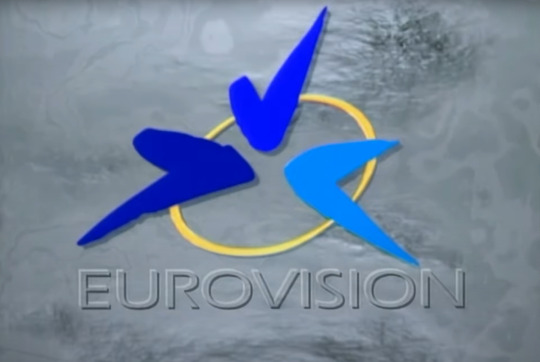
6 notes
·
View notes
Note
THREE-WEEK honeymoon in Malta? In this economy? WITH A SICK SON? It just keeps getting worse.

12 notes
·
View notes
Text
"He told us that all the country would be up, for the great jubilee was to come, and we must go with 'em." These were the words of a woebegone Kentish woman whose husband was imprisoned in Canterbury for his part in the disastrous Battle of Bossenden Wood in May 1838. At the time the agricultural workers of Kent were called "white slaves." Diptheria was rampant among them; they lived in dwellings called "birdcages" — bedrooms measured 8' x 5' x 6'. Eight years earlier in the "Swing Riots" they attempted to prevent the introduction of steam-powered threshing machines. Mutinous discontent smouldered fiercely to awaken briefly in the 1838 jubilee.
Thirty or forty poor people of Kent — vagabonds, small-holders, farm laborers — led by the extraordinary Sir William Courtenay faced soldiers of the Royal Army amid the osier-beds of Bossenden Wood in a battle resulting in several casualties and utter, lamentable defeat for the Kentish rebels. The episode is treated as an example of pathetic derangement. It is true that Sir William Courtenay had been committed to a lunatic asylum and that he was an impostor (he was born John Nichols the son of a Cornish inn-keeper). He was more than six foot. He had long black hair. He was immensely strong. In 1821 he visited London and secretly joined a Spencean Society.
In 1832 he disappeared from his wife and business, and reappeared on the other side of the country in outlandish dress posing as Sir William Courtenay, Knight of Malta, King of the Gypsies, King of Jerusalem. He became a darling of the Canterbury mob, he allied himself with the smuggling community of north Kent, he stood for Parliament, and edited a newspaper. He asserted the rights of the poor against the New Poor Law, against tithes, against flogging, against the Rich. Despite his crazed grandeur, flamboyant pretensions, and mental breaks, he appealed deeply to the Kentish peasantry who were willing to risk and lose their lives for this jubilee.
The Kentish rural proletariat though close to London was in many ways exceptional — it was godless and lawless in the sense that the Established Church had made few inroads and that its customary agrarian relations largely descended from the forest economy of ancient times rather than the "Improving" enclosed agriculture. Moreoever, it was pious in strictly non-conformist meanings. Indeed, there was little singing at the parish church following the battle because most of the Hunhill Church choir was either dead or in jail. Spencean ideas "led to his hopeless attempt to overthrow the established order in Kent." The defeat in battle of this jubilee was the last time that the English Army was used in combat against the English proletariat on English soil."
-Peter Linebaugh, ”Jubilating; or, How the Atlantic Working Class Used the Biblical Jubilee Against Capitalism, With Some Success“ (1990)
2 notes
·
View notes
Text
Citizenship in Malta by Investment
Citizenship by investment programs (CIPs) have gained popularity in recent years as a way for wealthy individuals to obtain citizenship in another country through a significant investment. One such program is the Malta Individual Investor Program (MIIP), which allows for individuals and families to obtain Maltese citizenship in exchange for a substantial contribution to the Maltese economy.
The MIIP was established in 2013 and is designed to attract high net worth individuals to Malta. Under the program, applicants must make a non-refundable contribution of €650,000 to the Maltese National Development and Social Fund, which is used to finance projects in the areas of social welfare, education, health, and culture. Additionally, applicants must also invest at least €150,000 in government-approved financial instruments and maintain a residence in Malta for at least 12 months.
The program has several benefits, including the ability to travel visa-free to over 180 countries, including the Schengen Area, the UK, and the USA. Additionally, Maltese citizenship provides access to the EU's labor market and the ability to live, work, and study in any EU member state.
The Malta Individual Investor Program (MIIP) is a citizenship by investment program that offers a pathway to Maltese citizenship through a significant investment in the Maltese economy, including a non-refundable contribution to the National Development and Social Fund and investments in government-approved financial instruments.
To apply for Malta residency, you will need to meet certain requirements such as having a clean criminal record and sufficient financial resources. You will also need to submit an application and supporting documents to the relevant authorities

However, the program has also faced criticism from some quarters, with concerns raised about the potential for money laundering and the risk of granting citizenship to individuals with questionable backgrounds. In response to these concerns, the Maltese government has introduced a number of measures to strengthen the due diligence process, including background checks and vetting by international security agencies.
However, the program has also faced criticism from some quarters, with concerns raised about the potential for money laundering and the risk of granting citizenship to individuals with questionable backgrounds. In response to these concerns, the Maltese government has introduced a number of measures to strengthen the due diligence process, including background checks and vetting by international security agencies.
Overall, citizenship by investment programs like the MIIP provide a means for wealthy individuals to obtain citizenship in another country and enjoy the benefits that come with it. However, it is important to carefully consider the potential risks and benefits before making a decision to invest.
Address: 20 Kavallieri Street, Xlendi, Gozo, XLN-1450,Malta
Email : [email protected]
Phone Number:+356 79597003
2 notes
·
View notes
Text
Facts of Malta's Constitution
2. Religion
The religion of Malta is the Roman Catholic Apostolic Religion.
The authorities of the Roman Catholic Apostolic Church have the duty and the right to teach which principles are right and which are wrong.
Religious teaching of the Roman Catholic Apostolic Faith shall be provided in all State schools as part of compulsory education.
41. Protection of freedom of expression
Except with his own consent or by way of parental discipline, no person shall be hindered in the enjoyment of his freedom of expression, including freedom to hold opinions without interference, freedom to receive ideas and information without interference, freedom to communicate ideas and information without interference (whether the communication be to the public generally or to any person or class of persons) and freedom from interference with his correspondence.
Nothing contained in or done under the authority of any law shall be held to be inconsistent with or in contravention of subarticle (1) of this article to the extent that the law in question makes provision -
that is reasonably required -
in the interests of defence, public safety, public order, public morality or decency, or public health; or
for the purpose of protecting the reputations, rights and freedoms of other persons, or the private lives of persons concerned in legal proceedings, preventing the disclosure of information received in confidence, maintaining the authority and independence of the courts, protecting the privileges of Parliament, or regulating telephony, telegraphy, posts, wireless broadcasting, television or other means of communication, public exhibitions or public entertainments; or
that imposes restrictions upon public officers,
and except so far as that provision or, as the case may be, the thing done under the authority thereof is shown not to be reasonably justifiable in a democratic society.
75. Sessions of Parliament (Part of it)
There shall be a session of Parliament once at least in every year, so that a period of twelve months shall not intervene between the last sitting of Parliament in one session and the first sitting thereof in the next session.
by Dunilefra, working for World Politics
#Malta#Dunilefra#Politics#Political Reform#World Politics#World Order#Fundamental Rights#Human Rights#Economy#Religion#State Policy#Political Analysis#Constitution#Constitutional Law
0 notes
Text

GO Malta is a telecommunications company that provides a wide range of services to customers in Malta. Founded in 1975, GO Malta was the first telecommunications company in Malta and has since become one of the leading providers in the country.
GO Malta offers a range of services including mobile phone plans, broadband internet, fixed-line telephone service, and television service. They also offer a variety of packages and bundles to help customers save money while getting the services they need.
In addition to their telecommunications services, GO Malta is committed to the community and the environment. They sponsor various events and initiatives in Malta and have implemented various eco-friendly policies to reduce their carbon footprint.
One of the things that sets GO Malta apart from other telecommunications providers is their focus on customer service. They offer 24/7 customer support and have received numerous awards for their customer service, including the Customer Service Excellence Award for three consecutive years.
Overall, GO Malta is a reliable and customer-focused telecommunications provider in Malta, offering a range of services and competitive pricing to meet the needs of their customers.
8 notes
·
View notes
Text
What If Jair Bolsonaro Wins?
Once deemed unlikely, reelection would allow Brazil’s president to double down on his cultural agenda and bring an uncertain outlook for foreign policy and the economy.

With polls tightening, a Bolsonaro victory on October 30 — seen as extremely unlikely until recently — no longer seems unthinkable. Indeed, while the majority of pollsters still see former president Luiz Inácio Lula da Silva ahead, Bolsonaro’s extraordinary spending spree of over 68 billion reais ($13 billion) during the past months seems to have provided the president with a sense of momentum. In addition, a more agile and unscrupulous digital strategy, including an avalanche of fake news shared by government supporters, and a series of missteps by the Lula campaign, including wobbly debate performances, explain why the final result may be much closer than expected.
Given that Lula has enjoyed a comfortable lead during most of the campaign, most analyses about the future of Brazilian politics and foreign policy use the return of the former leftist leader to power as the baseline scenario. In Western capitals around the world, numerous policymakers and commentators did little to hide their giddiness in the face of the former army captain’s seemingly flagging fortunes.
What would a Bolsonaro victory mean for Brazil and its place in the world? In many ways, the governing coalition of a second term would resemble that of the first, even though the so-called “technocratic faction” in Bolsonaro’s government, led by Finance Minister Paulo Guedes, would be less influential than during the first four years. While a second Bolsonaro government could be expected to continue to work towards debureaucratization and reducing external tariffs, Guedes would probably be powerless to stop Bolsonaro’s increasingly populist and fiscally irresponsible policies that have become more accentuated in recent months, and would be politically costly to reverse after reelection.
The “ideological faction,” temporarily weakened by the ouster of Foreign Minister Ernesto Araújo and Education Minister Milton Ribeiro, has received a significant boost recently by the stellar electoral performance of radical voices like former Family Minister Damares Alves, Magno Malta and Jorge Seif, who won Senate seats. A second Bolsonaro administration could thus be expected to place greater emphasis on social conservatism and culture wars, while the anti-China rhetoric would largely disappear, since Brazil would increasingly depend on Beijing given that its diplomatic isolation in the West would almost certainly deepen.
Continue reading.
#brazil#politics#brazilian politics#brazilian elections#brazilian elections 2022#mod nise da silveira#image description in alt
4 notes
·
View notes
Text
EU ministers on Friday agreed cuts to peak-hour power consumption and windfall levies on energy companies in an urgent effort to bring down sky-high energy prices.
The decision, announced by the Czech Republic in its role holding the EU presidency, aims to mitigate energy costs sent soaring by Russia's war in Ukraine and as the northern hemisphere winter looms.
European households and businesses are already staggering under surging energy bills, fuelling record inflation that in the eurozone has hit 10 percent.
Extra drama has been injected with several unexplained leaks this week of Russia-Germany undersea gas pipelines, Nord Stream 1 and 2, that were widely seen as "sabotage".
The EU ministers' agreement came a day after Germany – the bloc's export powerhouse that had long been dependent on Russian gas – announced a 200-billion-euro (about $200 billion) energy aid package to shield its consumers.
Other EU countries have deployed smaller-scale national measures with the same aim, but several demanded European-level concertation, in part to clamp down on energy-buying competition between EU peers.
Push for gas price cap
The two measures adopted were proposed by the European Commission.
The EU executive believes it can raise 140 billion euros from the levies on non-gas electricity producers and on energy majors that are raking in outsized profits from the global energy demand.
Its plan to cut power usage foresees a reduction of "at least five percent" during peak hours, according to a commission document seen by AFP.
Missing from the announced measures, however, was an idea espoused by 15 EU countries – among them France, Spain, Italy, Greece, Malta and Poland – for a price cap on imported gas.
The energy crisis, which had been brewing even before the war in Ukraine, took on greater magnitude when Russia severely curtailed natural gas supplies to Europe in retaliation for Western sanctions over its invasion.
Energy prices in the EU are calculated on the basis of the most expensive source, in this case gas, which has gone up around fivefold over the past year.
Several EU ministers went into the meeting wanting a gas price cap to be discussed.
"There is big disappointment that in the proposal that is on the table there is nothing about gas prices," Polish Climate Minister Anna Moskwa said.
"This maximum price for gas would be supported by the majority of European countries" and "cannot be ignored," she said.
But Germany resisted, fearing that a price cap would simply see liquified natural gas (LNG) shipments avoid Europe and sent to more lucrative markets, worsening the supply crunch for the EU.
The European Commission shares those concerns, although EU energy commissioner Kadri Simson said there needed to be a way to target just Russian gas -- which arrives in the EU by pipeline, not in LNG form.
"We have to remove the incentives that are there for Russia to manipulate these volumes, and the answer is clear: We have to offer a price cap for all Russian gas."
She and other participants, including Irish Climate Minister Eamon Ryan, said that, for a gas price cap to be effective other major buyers such as Japan and South Korea needed to cooperate with the EU.
German opposition
German Economy Minister Robert Habeck said that, while Berlin was open to the idea of a price cap on Russian gas "as a sanction", the broader application being called for was "treacherous".
He insisted that "we need to bring down consumption" as a priority, and "we must not allow too little gas to reach Europe".
While the measures agreed Friday were steps in the right direction, the Bruegel think tank in Brussels had warned in an analysis they were "not sufficient".
"A more comprehensive plan needs to ensure that all countries bring forward every available supply-side flexibility, make real efforts to reduce gas and electricity demand, keep their energy markets open and pool demand to get a better deal from external gas suppliers," it said.
Further EU measures were likely to be discussed at an informal summit in Prague next week, and another EU energy ministers' meeting on October 11 and 12.
"We need to continue our work. We are in an energy war with Russia," said Czech Energy Minister Jozef Sikela.
6 notes
·
View notes